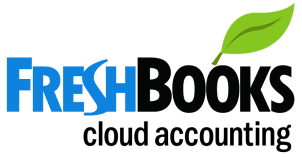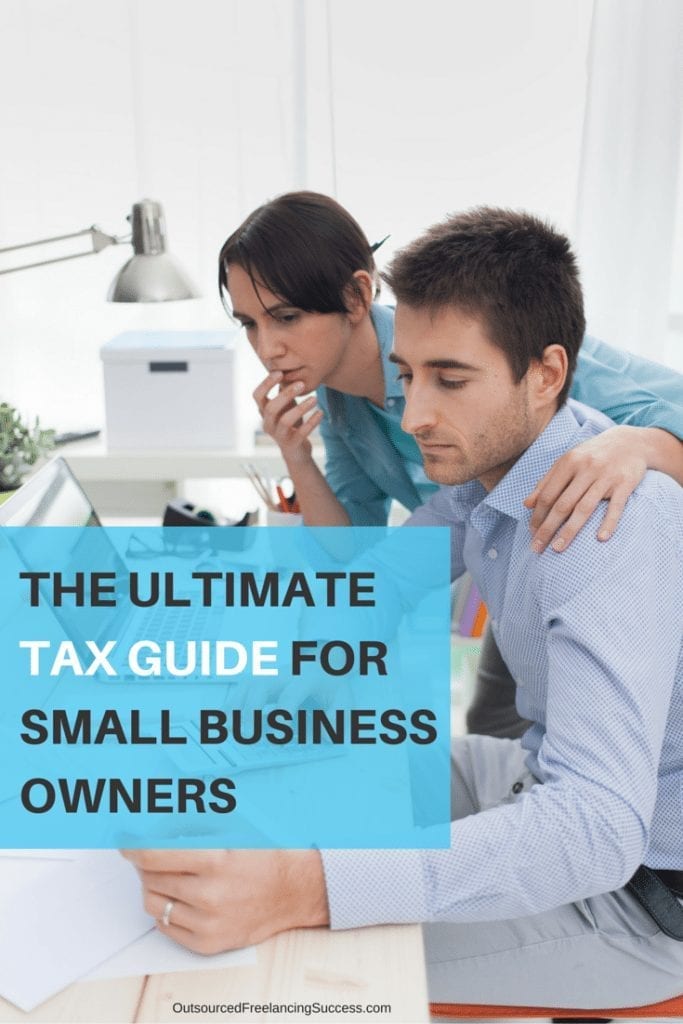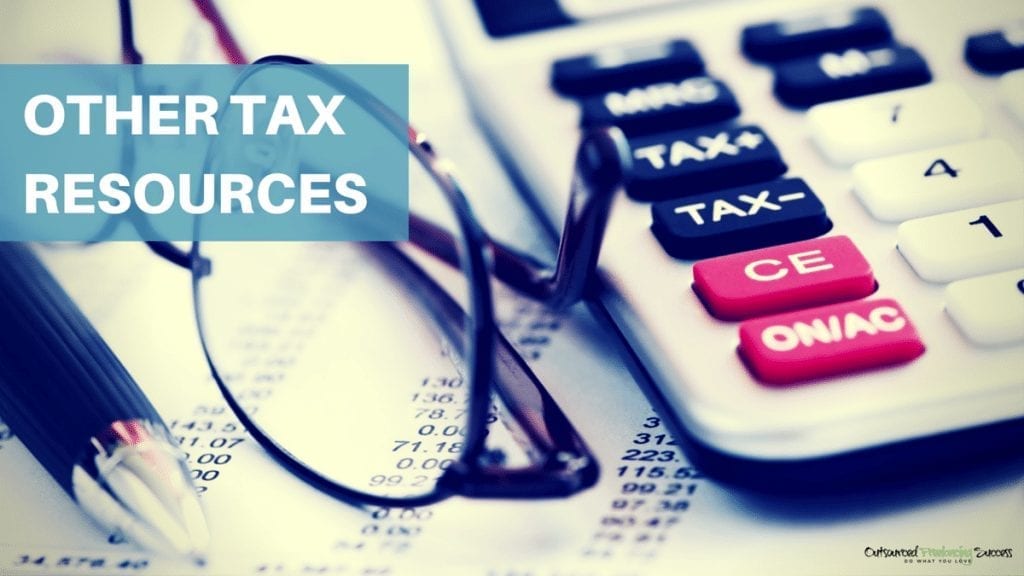Table of Contents
It doesn't matter what time of the year it is for you, when it comes to tax time, it can be a daunting task to tackle as someone who works from home, particularly if you've never had to worry about it before because you were working for someone else and they took care of it all…
I'll quickly raise my hand here and say I'm not a numbers person and actually hate anything accounting related… however, I've had to put my big girl pants on and deal with this, because I treat my business like a real business, not a hobby.
And that's exactly what you need to do too if you're hoping to have your side hustle turn into your full-time gig.
In this fairly epic post, I want to provide you with as many resources as possible for when it comes to tax time.
Disclaimer: before you get started, please make sure that you check out your own country's requirements and consult with a local accountant BEFORE attempting to do your taxes yourself. Always seek professional advice and complete your own due diligence when it comes to this sort of thing.
There are some affiliate links included in the information below. This doesn't cost you anything extra and I certainly wouldn't recommend something I don't personally use. If you don't wish to purchase through an affiliate link, simply navigate to the main website URL yourself 🙂
Now that I've got that little disclaimer out of the way, let's jump into the rather icky and often murky tax business.
Tax 101 for Side Hustlers, Freelancers and Work-From-Home Peeps
It all starts with what company structure you've got in place.
Here's a rundown on what you might already have in place:
Sole Proprietorship
This is the most basic type of business setup. You are the sole owner of the business and are responsible for all assets and liabilities. Simply put, it’s similar to being an employee, except now, you carry all the risk. If you default on a loan, your personal assets could be liable for payments. From a tax perspective, you still file a personal tax return, no special ‘business’ returns required.
Limited Liability Company
Commonly referred to as an LLC, it’s designed to provide limited liability like you get with a corporation, but tax benefits and efficiencies like in a sole proprietorship. The setup is more flexible and you have more operational options.
Cooperative
This is for more than one person in your business. It’s designed to meet the needs or provide a service that will benefit all owners, who will likely have a range of skills and provide different responsibilities to the business.
C Corporation
This is a more complex setup and is designed for larger and established companies who have multiple employees. Operational requirements are more restrictive and this requires a lot of setup.
Partnership
This is for two or more people who are looking to work collaboratively together. There are many different types of partnerships available, depending on the nature and responsibility for each partner involved in the business.
S Corporation
Similar in setup to a C Corporation except when it comes to tax. With an S Corporation, you are taxed only at the personal income level, not at the company income level. Still complex to setup and suitable if you have employees.
While the above is American focused, you will find similar setups in your own country. Here's the website links to check out based on country:
- USA: www.sba.gov
- Canada: www.canadabusiness.ca
- UK: https://www.gov.uk/business-legal-structures/overview
- Australia: www.business.gov.au
- South Africa: www.southafrica.smetoolkit.org
- Europe: Google your local Inland Revenue department
Business Income and Expense Tracking
Once you understand your business structure, you need to make sure that you're tracking your business income and expenses.
There are plenty of options for you to do this. The easiest and simplest would be to create a Google spreadsheet in your Google Drive and enter any income you receive in a month and any expenses you pay in a month.
If you want to make it a little more robust and add reporting functionality, check out programs like Freshbooks, Wave and Nutcache.
 My personal preference is Freshbooks. It's $19.95 per month for up to 25 customers/clients and you can track your income and expenses fairly easily.
My personal preference is Freshbooks. It's $19.95 per month for up to 25 customers/clients and you can track your income and expenses fairly easily.
I upload my Paypal transactions and my bank statements each month and quickly assign codes my accountant has provided, it takes no more than a few hours a month to do this.
The trick to tracking your income and expenses is to make sure you do it monthly. If you leave it to when your taxes are due… yikes! Stress levels will go through the roof and you'll go nuts. I'm speaking from personal experience… it's not something you'll repeat again.
As part of this process, you'll need to work out what expenses and tax deductions you can make as a freelancer or entrepreneur. Your accountant should be able to provide you with a list relevant to your country, but here's just some of the business deductions you could be claiming:
[bullet_block style=”size-16″ small_icon=”15.png” width=”” alignment=”center”]
- Advertising and Marketing expenses. Basically anything you do to market your business such as Facebook advertising, flyers etc
- Car and/or Travel expenses. If you use your car to travel to see a client, you can claim on this. If you use public transport to meet a client, same deal.
- Office expenses. Things like office cleaning or replacing the light bulb in your desk lamp.
- Commissions & Fees. Think affiliate fees or any fees paid to non-employees that result in generating revenue.
- Contract Labor. This relates to anything you outsource and pay someone independently, ie, not an employee.
- Utilities. This is a portion of your electricity, internet, phone etc that you use at home in your home office.
[/bullet_block]
Remember to check with your accounting professional about what the correct deductions are, or check your country's tax department website for more details.
Other Tax Resources
Once you've got your business structure sorted and you're tracking your income and expenses, paying taxes should be relatively straight-forward, especially if you're using an accountant.
In my experience, if you can pay your taxes monthly or quarterly, then this is your best option. Who wants to wait till tax time to get all this sorted and be landed with a huge tax bill? Not me!
If you're not sure at what point you need to pay tax, ie, some countries don't require you to pay tax until you reach a certain income level, your accountant will be able to tell you.
A handy tool you might like to try is a self-employed tax calculator. This one from Quickbooks should provide those of you in the USA an idea of what you'll need to pay.
Here's a few more resources from Quickbooks that you should definitely check out:
- Complete Guide to Taxes for the Self-Employed – this is a really in-depth guide to freelance taxes. Includes information on 1099 forms, Schedule C and 1040-ES tax forms, when quarterly tax due dates are, and some other general information on whether you should pay quarterly or yearly.
- VIDEO: Paid in Full: Making Money as a Freelancer – This is a video interview with a self-employed gal talking about how quick clients typically pay and what to potentially do if payments are either late or never occur. A great resource for anyone getting started!
For those of you outside of the USA, and I know there are a few of you, check out the resources below for more information, based on your country:
United Kingdom
Australia
Canada
South Africa
The best thing you can do for yourself is to plan ahead, get informed and seek guidance when you need it. I'm not a numbers person, so it makes complete sense to outsource the number crunching to someone who knows what they're doing, wouldn't you agree?
If you have a tax resource that you think should be mentioned here, leave a link in the comments below!



1 Response to "The Ultimate Work From Home Tax Resource"
[…] amount of setup, and you don't even need to have separate bank accounts. What you will need is a solid system for tracking income and expenses and a really good accountant that will offset your expenses to reduce your […]